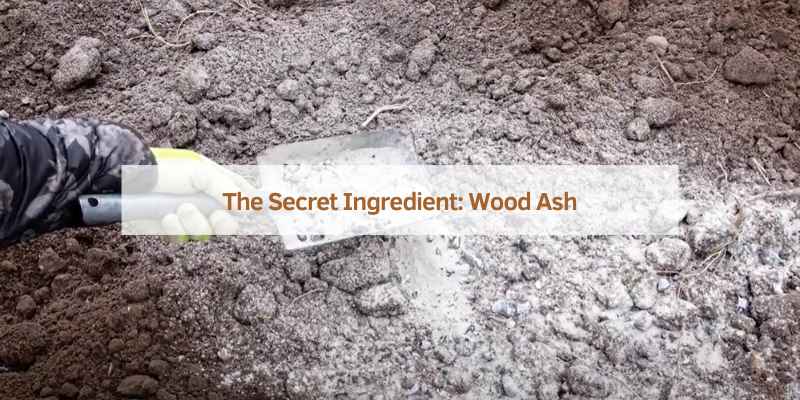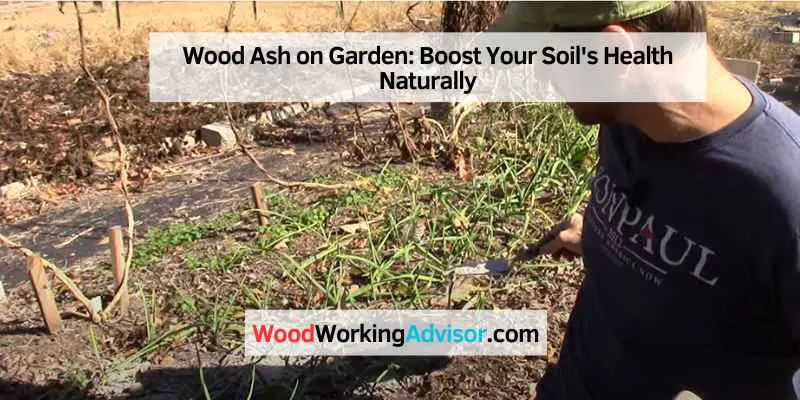Wood ash can benefit garden soil by raising pH levels and providing essential nutrients. Use it sparingly to avoid over-alkalizing.
Wood ash, a byproduct of burning wood, contains valuable minerals like calcium, potassium, and magnesium. These nutrients help improve soil fertility and promote healthy plant growth. Applying wood ash can raise soil pH, making it less acidic, which benefits many garden plants.
However, excessive use can lead to overly alkaline soil, potentially harming plant health. Always test soil pH before application to ensure appropriate usage. Spread wood ash evenly and mix it into the soil for best results. This natural amendment can be a cost-effective way to enhance your garden’s productivity and plant vitality.
The Secret Ingredient: Wood Ash
Wood ash can be a secret ingredient for your garden. It is a byproduct of burning wood. This ash can be very helpful for plants. It adds important nutrients to the soil. Your garden can grow better with wood ash.
Wood ash is rich in potassium and calcium. It also has some phosphorus and magnesium. These nutrients help plants grow strong. Wood ash can also make the soil less acidic. This is good for many garden plants.
It is important to use wood ash carefully. Too much ash can harm plants. A little ash can do wonders for your garden.

Benefits Of Wood Ash In The Garden
Wood ash can help to neutralize acidic soil. Many plants prefer soil that is not too acidic. Adding wood ash makes the soil more balanced. This helps plants grow better.
Wood ash is rich in essential nutrients like potassium and calcium. These nutrients help plants grow strong and healthy. Plants need these minerals to thrive. Using wood ash can improve the soil’s fertility. This means better yields from your garden.
Wood ash can act as a natural pest deterrent. Sprinkling ash around plants can keep away slugs and snails. These pests dislike crawling over ash. This helps protect your plants without using chemicals.
How To Use Wood Ash Correctly
Wood ash can help your garden grow. Sprinkle it on top of the soil. Mix it well with a rake. Avoid piles of ash in one spot.
Use small amounts of wood ash. Too much can harm plants. One cup of ash is good for every square yard of soil. Test the soil pH first.
Spring is a good time to add ash. Fall is also fine. Avoid rainy days. Ash can wash away. Water the soil after applying ash.
Safety Considerations And Precautions
Wood ash can help plants grow. Too much ash can harm plants. Always test your soil first. Ash can change the soil’s pH level. Keep an eye on plant health. Signs of stress mean you should stop using ash.
Too much wood ash can cause problems. Use small amounts at a time. Spread ash thinly over the soil. Mix it well into the soil. Monitor your plants for any changes. If plants look unhealthy, use less ash.
Store wood ash in a cool, dry place. Keep it away from children and pets. Use a sealed container to prevent spills. Label the container clearly. Check for moisture regularly, as wet ash can be dangerous.
Complementing Compost With Wood Ash
Wood ash can boost the nutrient value of your compost. It adds essential minerals like calcium, potassium, and magnesium. These nutrients help plants grow stronger and healthier. Remember to use wood ash from untreated wood only.
Use a small amount of wood ash in your compost. A good ratio is one part wood ash to ten parts compost. Too much wood ash can make the soil too alkaline. Always mix the ash well with the compost. This ensures even distribution of nutrients. Monitor the pH level of your compost regularly.
Types Of Gardens That Benefit Most
Wood ash enriches soil, making it ideal for vegetable gardens, fruit trees, and flower beds. Balances pH levels and adds essential nutrients, promoting healthy plant growth.
Vegetable Gardens: A Perfect Match
Wood ash is a great addition to vegetable gardens. It helps improve soil quality. It provides important nutrients like potassium and calcium. These nutrients make vegetables grow stronger and healthier. Always use a small amount of wood ash. Too much can harm the plants. Spread it evenly over the soil. Mix it well. This ensures the nutrients reach the plant roots.
Flower Beds And Wood Ash Compatibility
Flower beds also benefit from wood ash. It helps flowers bloom better. The added nutrients make the flowers more vibrant. Always use wood ash sparingly. Too much can change the soil pH. This may harm some flowers. Mix the ash well into the soil. This ensures even distribution of nutrients. Your flower beds will look more beautiful and healthy.
Common Mistakes To Avoid
Never use ash from treated wood. Treated wood contains harmful chemicals. These chemicals can damage your plants and soil health. Always use ash from natural, untreated wood. This ensures the safety of your garden.
Avoid using wood ash near acid-loving plants. Plants like blueberries and azaleas prefer acidic soil. Wood ash makes the soil more alkaline. This can harm these plants. Keep wood ash away from these areas.
Sustainability And Environmental Impact
Wood ash can reduce waste by recycling it in gardens. This keeps ash out of landfills. Using ash in gardens helps the soil. It also saves money on fertilizers. Gardeners find wood ash useful for plants. It can improve the environment. Recycling is good for the Earth.
Wood ash affects soil life. It can help some soil microbes. But too much ash can harm them. Balance is important for soil health. Ash can change the soil’s pH. This impacts plants and animals. Healthy soil means more biodiversity. Using ash wisely helps gardens thrive.

Frequently Asked Questions
Which Plants Do Not Like Wood Ash?
Plants like blueberries, azaleas, rhododendrons, and potatoes dislike wood ash. Wood ash raises soil pH, harming these acid-loving plants.
Is Wood Ash Good For Your Garden?
Yes, wood ash can benefit your garden. It provides essential nutrients like potassium and calcium. Use sparingly to avoid soil imbalance.
Which Vegetables Like Wood Ash?
Vegetables like tomatoes, carrots, and spinach thrive with wood ash. It improves soil pH and adds potassium.
Is Wood Ash Good For Tomatoes?
Yes, wood ash is good for tomatoes. It provides potassium and calcium, which support healthy growth and fruit production. Use sparingly.
Conclusion
Using wood ash in your garden can enhance soil health and boost plant growth. It provides essential nutrients like potassium and calcium. Always test your soil’s pH before applying. Proper usage of wood ash promotes a thriving garden. Embrace this natural and sustainable method to improve your gardening efforts.


